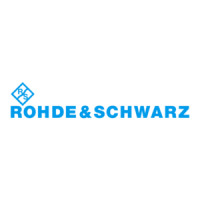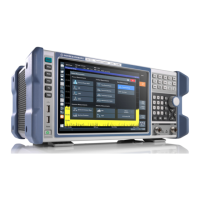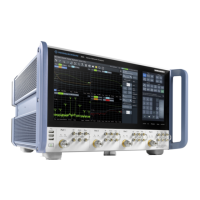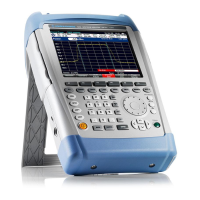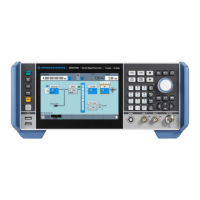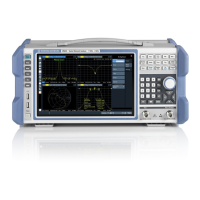R&S FSL Cable TV Measurements (Option K20)
1300.2519.12 2.63 E-11
12. A marker is automatically set. Press the MKR key and, using the rotary knob, move the marker to
t
he frequency you want to measure the beat at. You should take care not to measure a CTB beat
instead of a CSO beat.
Note: The active modulation standard contains a Quiet Line parameter. It tells, in which video line the
vision carrier is not modulated. Be sure to set this parameter correctly (Modulation standards)!
The R&S FSL captures IQ data during this line and calculates an FFT.
Fig. 2-42 CSO Quiet Line measurement
The lower pane shows the final CSO ratio and whether it is passed or failed. It also shows the most
important correction factors used to calculate the CSO ratio.
In Quiet Line mode the beat reading will be not as accurate as in Off–Service mode, due to the still
active channel. But you do not have to turn off channels for a quick check.
CTB measurement
This measurement determines the ratio of signal power and the level of composite triple (order) beats.
These beats normally fall onto the vision carrier.
The signal power is normally the peak power of the modulated vision carrier, which is the power of the
unmodulated vision carrier. You can modify this default setting with the softkey Reference Power (for
details refer to chapter 4, section "Cable TV Measurements (Option K20)").
The measurement display is split into two panes. The upper pane displays the spectrum of the
measured beats. The lower pane displays the result table for the measurement and whether the limits
are passed or failed.
Test setup:
Refer to the section Analog TV test setup.
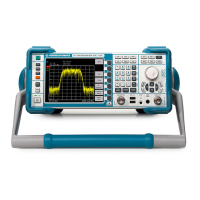
